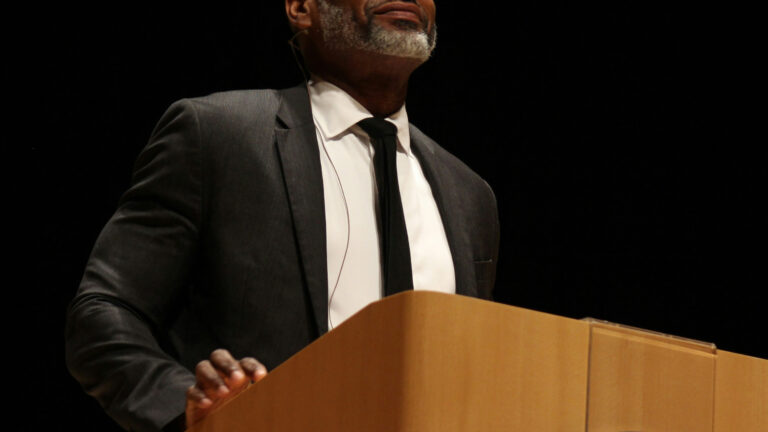How will the world see God? One unfortunately overlooked answer is by looking at his church. As Mark Dever writes in A Display of God’s Glory, “It is in the church that God’s Spirit—the Spirit of Jesus—rules and reigns, and is made visible in the lives of love that we live… We reflect God’s own character by the character of our congregation’s life. Therefore, every aspect of the church’s life is worth our careful consideration” (p13-14). The world is watching the church. So we must ask what our congregational lives communicate about the God we profess to worship.
How we organise ourselves as a spiritual community really matters.
The Church is On Display
Writing to the Corinthians, Paul reminds believers that everything is to be done in an orderly way (1 Corinthians 14:40). He exhorted them in this way because he had an eye towards unbelievers walking in (see 1 Corinthians 14:20-25). And as Paul exhorts another church, through the church God displays his wisdom (Ephesians 3:10), and his glory (Ephesians 3:20-21). In addition, as servants of the great king and Lord we must obey his instructions. These include God’s principles for how we are to gather together.
Thus, how we organise ourselves as a spiritual community really matters. And that is the purpose of Dever’s book: to provide biblical guidance on matters of church governance and order.
Two Key Ways the Church can Display God’s Glory
In just 88 pages, Mark Dever explores the leadership roles of deacon and elder and the need for membership within the local church. He also argues for the independence of local churches, which is a view known as Congregationalism. But I will focus my discussion on the two areas of membership and local church leadership or governance.
1. Membership
Being a part of God’s people requires commitment. However, our commitment must extend beyond beliefs and worldview. All Christians must be concerned about the life of the local church. Membership is how Christian churches have historically sought to realise this. And it is very logical. Every community knows its members.
Communities inform belonging – and to whom we are accountable to – whether it is a tribe, family or a business group. So it is strange when God’s own community lacks personal knowledge of its members.

A Display of God's Glory
Mark Dever
A Display of God's Glory
Mark Dever
A Display of God’s Glory focuses on what scripture teaches on four of the most basic components of church polity-deacons, elders, congregationalism, and membership. Dever presents a biblical model that aims to bless the Church and create an atmosphere that will withstand the pressure of community life. May God use our efforts to help us better understand His intentions for our life together in the church.
We find numerous indications throughout Scripture that God’s people always knew who belonged
The Importance of Belonging
If the church is “a regular assembly of people who profess and give evidence that they have been saved by God’s grace alone through faith alone in Christ alone to the glory of God alone” (p67), it should have a means of identifying those who belong to it. While Christian denominations and traditions differ on the details, there is at least a general conviction that one ought to ‘belong’ to a church. This is not the same as nominally attending its services.
As Dever points out, we find numerous indications throughout Scripture that God’s people always knew who belonged. God established his covenant with Noah and his family. He chose Abraham and his descendants. Throughout the Old Testament, his people were the Hebrews or Israel. In the New Testament this community is broadened to include Jews and Gentiles who believe in Jesus as the Messiah.
Despite this broadening, boundary markers remain definite. The epistles of Paul repeatedly mention people who were known to the recipients of his letters. For example, see Romans 16:1-16; 1 Corinthians 16:12-18; Philippians 2:19-25; and Colossians 4:7-17.
Practically, What does Membership Look Like?
Being a part of the church involves being actively engaged in its life. This involves undergoing the ordinance of baptism in line with Christ’s instruction and the practice of the disciples (Matthew 28:19; Acts 2:41; 8:38; 10:48). It requires participating in the Lord’s Supper (Luke 22:19-20; 1 Corinthians 11:23-26), as well as gathering together frequently (Hebrews 10:25). And as Paul points out in 1 Corinthians 5 and Galatians 6, godly discipline is a feature of church life. Finally, we must be characterised by a radical commitment to love other believers as Christ commanded (John 13:35; 1 John 4:20).
Membership is much more than attending a class and signing a paper
Membership is much more than attending a class and signing a paper. As Mark Dever notes: “Uninvolved ‘members’ confuse both real members and non-Christians about what it means to be a Christian. And we ‘active’ members do the voluntarily ‘inactive’ members no service when we allow them to remain members of the church; for membership is the church’s corporate endorsement of a person’s salvation” (p76). Thus leaders should be slower to admit members. On the other hand, every Christian should take membership far more seriously.
2. Leaders for The Church
Because God loves his people, he gives them leaders. Scripture provides much direction regarding church leadership. They are to be godly, caring and diligent, not out to serve themselves but eager to meet the needs of Christ’s flock (see 1 Timothy 3:1-7; Titus 1:7-9; 1 Peter 5:1-5). And Mark Dever does a fine job in unpacking these criteria. One thing we might note from the requirements listed above is that character trumps competency.
Because God loves his people, he gives them leaders
At the risk of oversimplification, we might say that deacons provide for the material needs of members, while elders (which includes ‘pastors’) are largely responsible for overall theological guidance and leadership. Dever presents a compelling case for this distinction, which is worth considering.
The Role of Deacons
The role of the deacon became necessary as the early church grew in number and therefore complexity. It became critical for the apostles to delegate certain responsibilities, such as material care of the believers, to another group of godly helpers (see Acts 6).
Their work was significant for at least three reasons. They:
- Were involved in caring for the physical needs of the church
- Worked to foster the unity of a multi-ethnic body, thus preserving the integrity of the church’s witness
- Supported the ministry of God’s Word by allowing the apostles to focus on preaching.
Certainly, every church still needs such help. But what kind of people must these be? In a classic passage (1 Timothy 3:8-13), Paul lays out the qualifications. Among other things, they must be godly, wise and diligent, willing to serve.
Nevertheless, we must not fall into thinking that God has a different ethic or morality for leaders distinct from other believers. He calls everyone, male or female, elder or recent convert, to the high standard of love, faith, and hope through the power of the Holy Spirit. What these requirements indicate is that immorality may disqualify certain Christians from leadership.
The Role of Elders
As I’ve already noted, elders are uniquely tasked with spiritual or theological leadership. The New Testament implies that there were more than one elder per congregation. They were often referred to in the plural (Acts 16:4; 20:17; 21:18; Titus 1:5; James 5:14). We can also see the presence or appointment of multiple elders to be the pattern throughout the book of Acts (Acts 11:30; 14:21-23; 15:2,4,6,22; 20:17). For this reason, many churches today are lead by a “plurality of elders.”
We need strong, gospel-centred churches in Africa… Mark Dever’s little book is an excellent guide on this journey
Displaying God’s Glory in the African Church
I believe many segments of the African church will be wise to take heed of this biblical pattern. For this practice would provide balanced, accountable leadership. It would also go some way towards preventing authoritarian rule in congregations. The qualifications for an elder, contained in 1 Timothy 3 and Titus 1, are actually quite similar to those for a deacon. This should not surprise us, since leaders are ultimately proven and mature believers. Whether an elder or a deacon, every leader is a servant. God calls them to lay down their lives, just like their King did, for the good of those under their care, and for God’s glory.
It is obvious that we need strong, gospel-centred churches in Africa. These must be communities which take the Bible seriously, including what God teaches on church leadership and governance. The New Testament has much to teach us regarding God’s purpose and directives for the local church. Mark Dever’s little book is an excellent guide on this journey.














